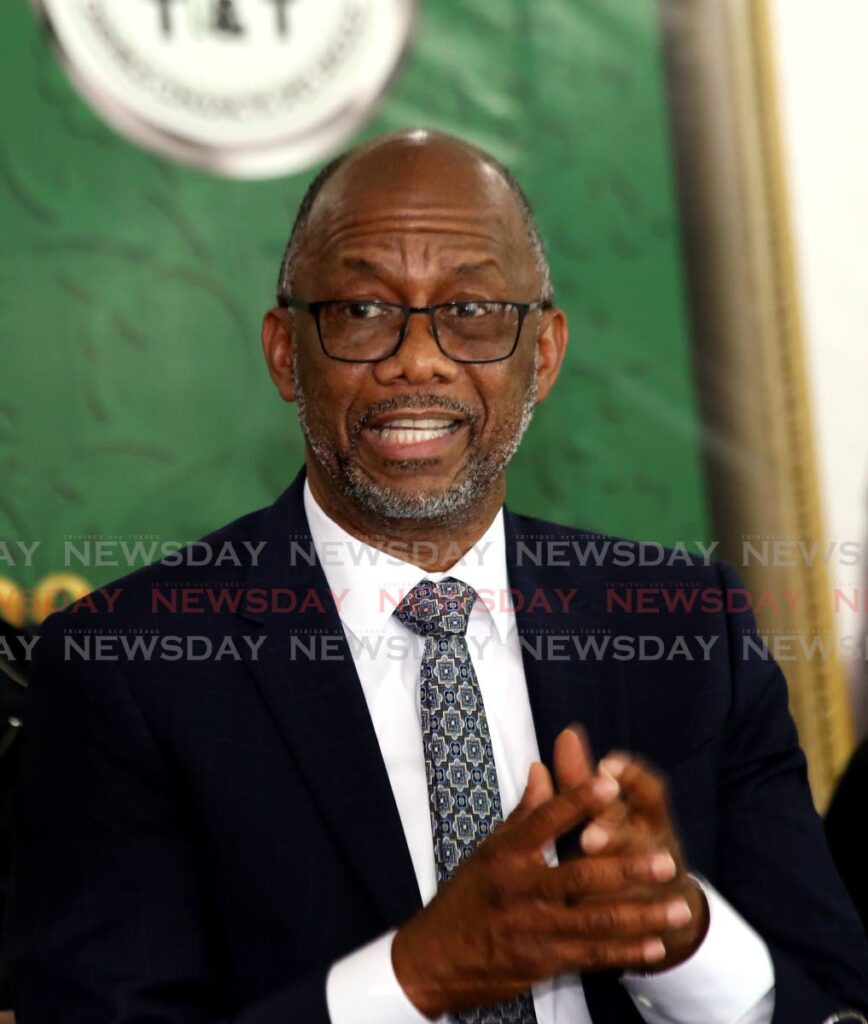Government extends deadline for workers to move to TTRA

THE Public Services Association (PSA) on Monday welcomed the Government's decision to allow workers more time (until November) to decide on making a transition to the TT Revenue Authority (TTRA), in a statement titled, "Government backs down."
By that time, the UK-based Privy Council will have ruled on the union's appeal against the TTRA (the PSA having been rejected by the High and Appeal Courts).
The PSA said the Government had initially set a date of July 31 for officers in the Inland Revenue Division (IRD) and Customs and Excise Division (CED) to decide on transferring to the TTRA, but on Monday extended that deadline.
"At the hearing today, the Government indicated to High Court Justice Westmin James that Minister of Finance Colm Imbert will today pass an order extending the time until November."
The PSA said the move aligned with the dissenting judgment of Justice of Appeal Peter Rajkumar advocating an injunction until November to preserve the status quo.
Last Friday, the PSA got permission to appeal the Appeal Court's majority decision to the Privy Council by a virtual hearing in the week of July 24, with the judgment immediately afterwards.
"At a case management hearing held today however, attorneys for the state indicated that the government has decided to extend the time and hence the court gave directions and fixed the trial for October 5th, 2023. The PSA is overjoyed and welcomes this development.
"The three months will ease the pressure and strain from public officers who were being forced to make a decision about their careers that will have lifelong consequences."
The PSA said its president, Leroy Baptiste, had stood his ground, arguing this deadline was "unfair, unrealistic and unreasonable.
"It was oppressive because it came in face of the PSA’s constitutional challenge to the legal validity of the TTRA and was an attempt to steal a march on the workers."
The PSA backed Rajkumar's remarks about a demonstrated possibility of "imminent irreparable harm to members of the IRD and CED who elect to accept VSEP and to members of the public, who may be the subject to enforcement proceedings by the authority, with possible attendant constitutional implications if the act is implemented on August 1, prior to a determination of its constitutional validity."
Rajkumar also said there was no evidence that short-term damage to the authority or to the State would outweigh the imminent irreparable harm to the appellant and the wider public. "There is the certainty that revenue collection can continue if the current state of affairs is preserved if the de facto status quo and current state of affairs is preserved for a further short period. The IRD and CED are already functioning and have been so functioning since at least Independence in 1962."
Rajkumar's ruling predicted "administrative chaos" if three was a need to reverse any transfers of staff to the authority, repopulate the key revenue-collection agencies of the government (IRD and CED), and manage the reversal of and possible litigation relating to all steps the authority might take in the interim three-month period.
"Not to be ignored is the fact that 200 public officers as at May 25 had not yet received letters with the information that would enable them to determine which of the options, including VSEP to accept."
The PSA urged the Government to let the law to take its course. "We demand due process, equity and justice for aggrieved workers."
The union said this was a case of fundamental public and constitutional importance requiring a definitive pronouncement from the Privy Council, as TT's highest court.
"We call upon the Government to respect the rights of the workers and stop trying to ram the TTRA down their throats."
The union alleged the TTRA was "unconstitutional and illegal because it is susceptible to political influence, manipulation and control by the Minister of Finance."
Such a politically-compromised agency could never be in the public interest, which ever party is in power, alleged the PSA.
"This case is therefore, not simply about the plight of workers, but the rule of law and the protection of our constitution, which is the supreme law of the land.
"The PSA shall therefore continue this struggle on behalf of the workers and people of this country so that justice can be done according to law."
Attorney Douglas Mendes, SC, representing the Office of the Attorney General, told Newsday that the TT Revenue Authority Act (section 18) allows the Minister of Finance the discretion to extend the time period for public servants to exercise their options.
"So the minister exercised his power to extend the time." Mendes said last Friday he had told the court the minister was giving consideration to an extension of time, and on Monday told the court Imbert had made the decision.
On May 25, Newsday reported that Mendes, as the attorney representing the PSA, queried the Ministry of Finance's methodology to arrive at its four per cent wage hike offered to public servants for 2014-2019, in his cross-examination of the ministry's permanent secretary Suzette Taylor-Lee Chee in a hearing between the Chief Personnel Officer (CPO) and the PSA at the Industrial Court, Port of Spain.
Late Monday evening, the ministry sent to media houses legal notice 211 to give notice of an order made by the minister under section 18(2) of the act.
The order stated it was "subject to negative resolution of Parliament", meaning it would stand unless Parliament actively intervenes to negate it.
It said, "This Order may be cited as the Trinidad and Tobago Revenue Authority (Extension of Period) Order, 2023.
"The period under section 18(2) of the Act is extended to November 30, 2023."

Comments
"Government extends deadline for workers to move to TTRA"